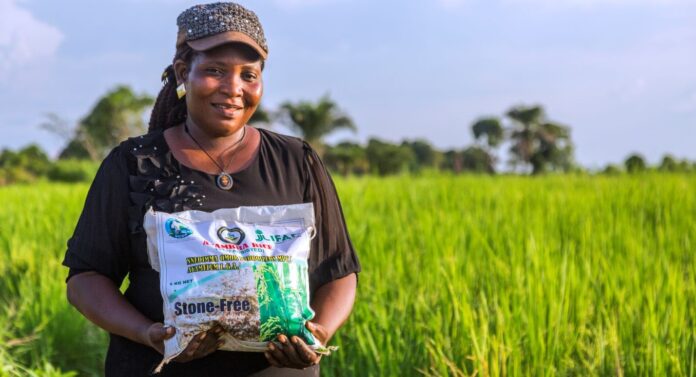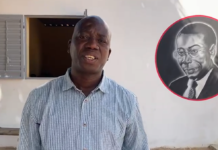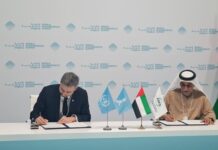The International Fund for Agricultural Development (IFAD) is accelerating its efforts to catalyse increased private sector investments in rural and agricultural development as global leaders gather at the World Economic Forum (WEF) in Davos to discuss financing today’s global challenges.
This coincides with IFAD’s formal inclusion in the Development Finance Institutions (DFI) Enhanced Blended Concessional Finance working group.
The working group operates as a collaborative platform to address global challenges and leverage, in a rigorous and transparent manner, concessional blended finance to stimulate investment in sustainable development.
IFAD’s membership acceptance into the working group and its adherence to the DFI Enhanced Blended Concessional Finance Principles for Private Sector Projects aligns the institution with all DFIs and Multilateral Development Banks (MDBs) providing concessional blended finance.
“We must accelerate our engagement with the private sector if we truly aim to end hunger and poverty and tackle climate change before it is too late. Private sector investments, know how, access to markets and available technologies are absolutely essential to transform rural economies and they are a lifeline to small-scale food producers on the frontline of the climate and food crises,” said Alvaro Lario, President of IFAD while in Davos.
“IFAD is stepping up action to provide more concessional blended financing to buffer risk and encourage vital private investments.”
Strategic deployment of blended finance
The strategic deployment of blended finance emerges as a cornerstone of IFAD’s approach, strategically leveraging development finance to mitigate risks and stimulate investments, particularly from the private sector, that might otherwise falter on purely commercial terms.
Last month, IFAD Member States endorsed a roadmap for IFAD 13th replenishment cycle (2025-2027) with a renewed ambition to scale up private sector investments through IFAD’s Private Sector Financing Programme (PSFP) to essential private stakeholders in rural areas including farmers organizations and cooperatives, small- and medium size enterprises and agrobusinesses, and financial institutions that serve small-scale farmers and rural poor.
Since 2021, the programme was largely funded by earmarked donor contributions that complemented a US$25 million of seed funding provided by IFAD.
Going forward, IFAD intends to significantly step-up its own direct financing of private sector operations, with a planned investment of over US$100 million from its balance sheet under the PSFP during 2025-2027.
While additional donor contributions will remain important, particularly for blending, this shift is meant to better leverage IFAD’s own financial capacity and help the PSFP catalyze up to US$500 million of private sector investment to small scale producers and poor rural households.
PSFP funding provision
The PSFP provides funding through three types of instruments: debt including loans to rural SMEs, value chain actors and cooperatives and lines of credit to local financial institutions; risk sharing facilities and guarantees; and equity.
The overarching objectives of the PSFP are job creation and economic inclusion of youth, women’s empowerment and promotion of climate adaptation and mitigation.
A new PSFP operation is being approved with IFAD providing US$2.5 million to Hamkorbank, a leading commercial bank to support micro-loans available to dairy and horticulture producers in Uzbekistan.
Since its launch in 2021, the PSFP has financed US$33 million to fund eight operations and attracted US$155 million in cofinancing, benefitting up to 500,000 people.
Using the PSFP, IFAD is also leading the development of and supporting large-scale investment platforms, like the US$200 million Africa Rural Climate Adaptation Finance Mechanism (ARCAFIM) launched last December at COP28 in collaboration with Equity Bank and several funding partners including Denmark, Finland, the Green Climate Fund and the Nordic Development Fund.
ARCAFIM blended finance structure
ARCAFIM relies on a blended finance structure, among others, to incentivize private sector investment into climate adaptation for small-scale producers. It blends donor resources with commercial funds from Equity Bank and is available in Kenya, Rwanda, Tanzania and Uganda.
Today, more than 3.1 billion people are unable to afford a healthy diet, and more than one child in five is stunted.
As climate change accelerates and the global food crisis continues, IFAD is making every effort to find innovative solutions to finance and support rural populations’ climate adaption and the fight against growing hunger and inequalities.








